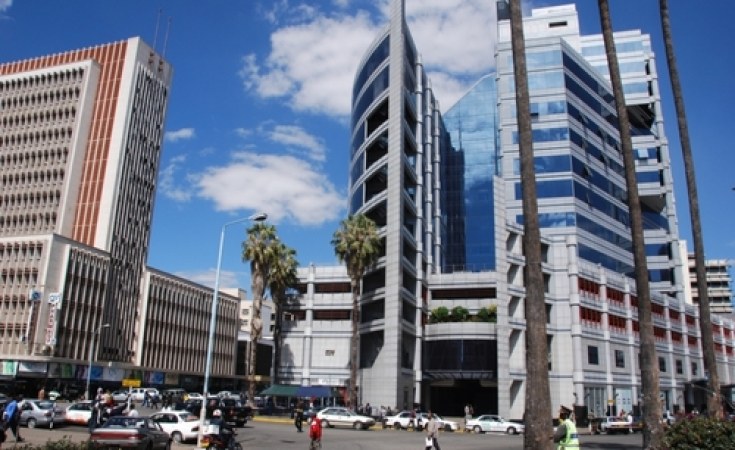Mutare — A survey reporting a drop in support for the Movement for Democratic Change-Tsvangirai party (MDC-T) has led to much soul-searching within the coalition government partner.
Three years on from the 2009 Global Political Agreement (GPA) - under which President Robert Mugabe's ZANU-PF party and the MDC agreed to share power with Morgan Tsvangirai as prime minister - the MDC-T's popularity has, according to the Freedom House poll, fallen while ZANU-PF's has risen.
The coalition was formed after elections in 2008 in which Tsvangirai withdrew from the presidential run-off, having won the first round, citing persecution of his supporters. Mugabe was thus elected president unopposed though amidst international condemnation.
Zimbabweans voice their opinion
The survey of Zimbabwean public opinion - commissioned by USA-based NGO Freedom House and led by South African political analyst Susan Booysen and the Mass Public Opinion Institute in Harare - was the most recent in a series of three conducted since September 2009 thus allowing for the observation of trends. A nationally representative sample of 1198 adult Zimbabweans was asked about a range of topics including political power, elections, fear, violence, the constitution, and socio-economic conditions. Interviews were carried out in all ten provinces in each respondent's language of choice.
Asked who they would vote for if parliamentary elections were held tomorrow, 47% of respondents said they would not vote or refused to indicate who they would vote for - this was up from 41% in 2010. Of the 53% who declared their preference, 20% said they would support MDC-T - down from 38% in 2010 - and 31% said ZANU-PF - up from 17% in 2010.
Why the fall in popularity?
Various factors could have resulted in the decline of MDC-T support since it became part of the coalition government.
A senior and founding member of the MDC-T, speaking to Think Africa Press on the condition of anonymity, admits that the fall in support could be the result of poor performance by councillors and ministers. "Our councillors have been fingered in various corrupt acts and some have been fired by the party", he explains. "This has greatly tainted our image as a party. Though we have acted on the corrupt councillors, the electorate is not entirely convinced. This survey is a wake up call to us as party."
He continues: "Of course we cannot entirely blame our ministers in the coalition government because some were given sensitive ministries like the Finance Ministry and Public Services. Look how Finance Minister Tendai Biti is blamed for almost every negative thing in the country while Public Services Minister Lucia Matibenga is blamed for the plight of civil servants. This is unfair and the electorate at times does not understand how government operates, hence people say MDC ministers are not performing."
Political analyst Tendai Mudzunge, on the other hand, suggests that it was joining ZANU-PF in government that compromised the MDC-T in the eyes of the people.
"MDC-T's popularity was centred on failure by the ZANU-PF government, but now that the party is in government they can no longer blame ZANU-PF for government failure", he says. "The party thrived on being an opposition party. ZANU-PF has dragged MDC-T in the mud and all parties are now dirty. Zimbabweans were expecting MDC-T to perform miracles in government, but now that no miracle has been performed the electorate is losing faith in the party."
Offering another perspective, independent economic consultant John Limani, suggests that ZANU-PF populist economic policies - such as the campaign to force foreign-owned companies to surrender majority shareholdings through community share trusts - are the reason behind ZANU-PF's resurgent popularity. "MDC-T seems to be against the economic indigenisation and empowerment, which to some people might look like the party is against black empowerment", Limani explains. "ZANU-PF has received widespread support from poor Zimbabweans on the economic empowerment drive."
A wake-up call for the MDC?
While ZANU-PF has accepted the favourable findings of the opinion poll, some within the MDC-T have been less willing to take the research at face value.
MDC-T spokesman Douglas Mwonzora, for example, said that surveys carried out under current conditions were difficult to rely on due to the fluid nature of Zimbabwean politics and opinion and called for a degree of measure in looking at the research. "Given the margin of error acknowledged in the report, it is difficult to rely entirely on this report to gauge the opinion of the people of Zimbabwe on their political choices", he said. "We note that a lot of people interviewed refused to disclose their political preferences."
ZANU-PF central committee member Chris Mutsvangwa, however, comments: "historically it [Freedom House] put out findings which were supportive of the MDC-T, which used to embrace them as an objective organisation. Now that the news is no longer what the MDC-T is expecting of them...they are beginning to denounce it."
Indeed, many people have warned the MDC-T to take the survey seriously. Political analyst Phillan Zamchiya, for example, believes that instead of dismissing the poll, the MDC-T must work to rectify its mistakes. "Confronting the elephant in the room rather than being dismissive is for the party's own ultimate good", Zamchiya writes, adding that there are a number of issues in the report "that the MDC-T should seriously consider in order to turn the tide in the next election".
Andrew Mambondiyani is an awarding-winning Zimbabwean journalist with more than 10 years experience. He has reported extensively on political, environmental, agricultural and mining issues in Zimbabwe from the land reform program to illegal gold and diamond mining in the country. He has written for international publications, including Yale E360, a USA environmental magazine. From 2007 to 2008 he served as one of the inaugural fellows at Middlebury Fellowship on Environmental Journalism in USA.


